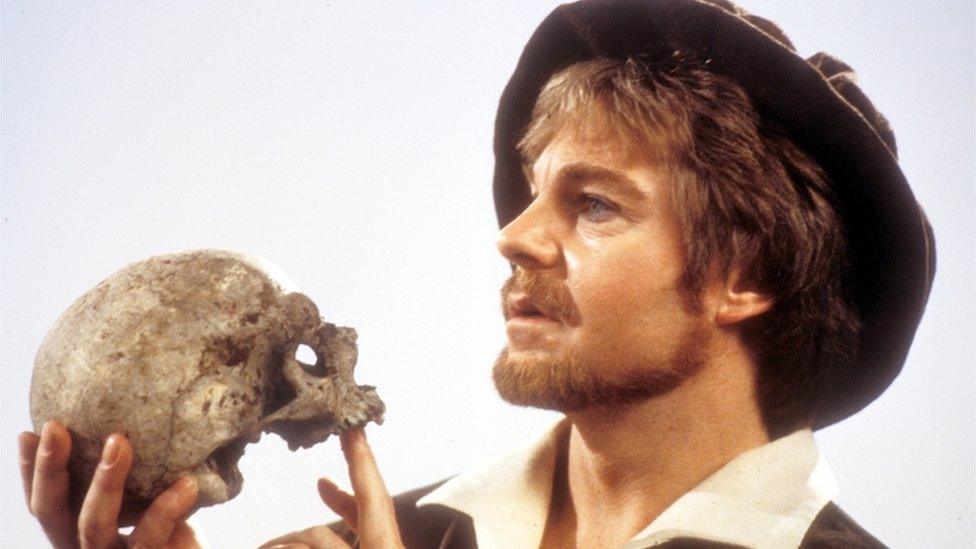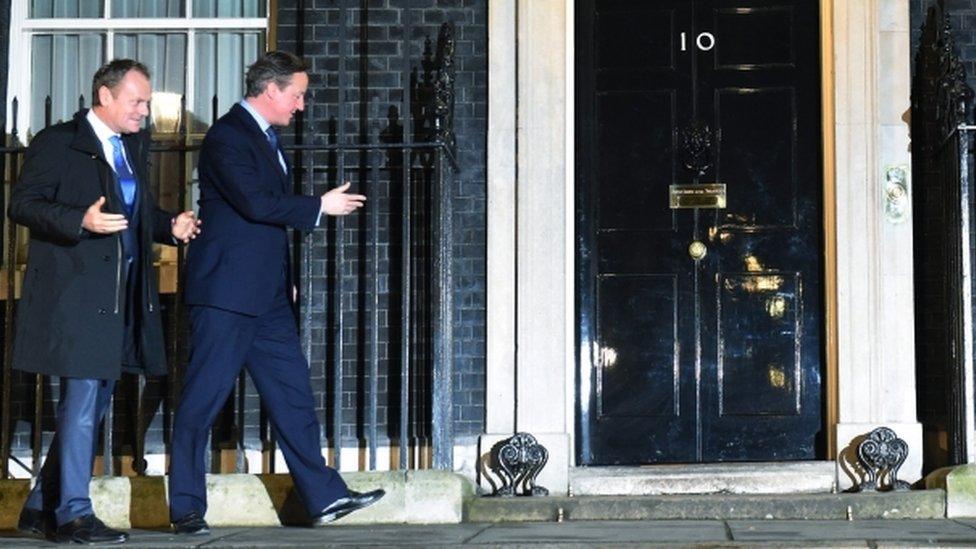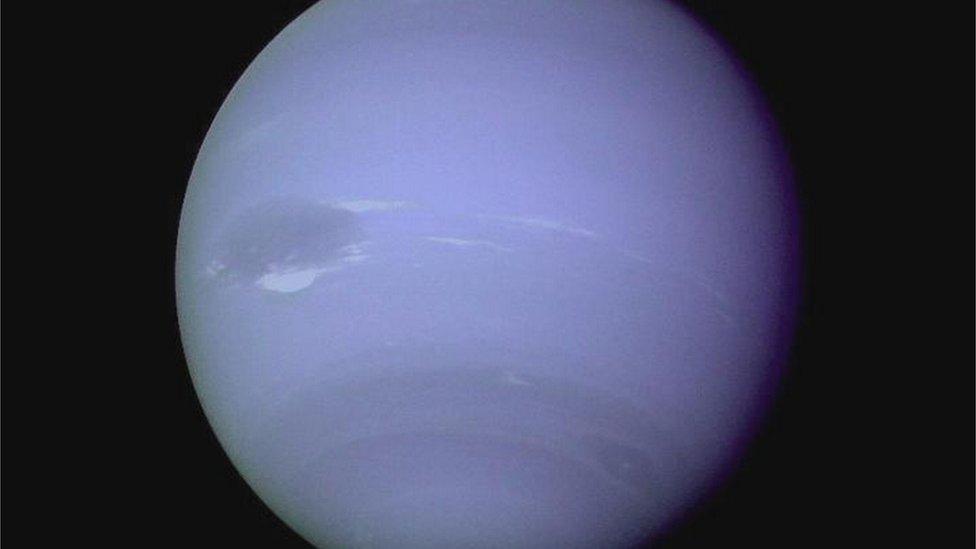Is the deal a dose of reality for the EU?
- Published
- comments

Is quoting Hamlet wise in relation to the future of the EU?
"To be, or not to be together, that is the question which must be answered." The President of the European Council, Donald Tusk reaches for his Shakespeare, external to stress the enormity of the decision before us.
He doesn't spell out that Hamlet is pondering a big existential question - whether or not to kill himself, and so risk an eternity in hell. He may well think that leaving the EU is the global equivalent of being cut off from God's love in a fiery pit for all time.
But the quote is not propitious. Hamlet of course, does not kill himself. But he and almost everyone else ends up dead, sprawled across the stage.
I am sure it is an unintended irony that the only person left alive to survey the tragedy is young Fortinbras, external from Norway, a country that these days is outside the EU.
There will enough words, wild and whirling, from me and others on the deal and the UK position. For now I want to look at the big picture of what the deal says about the state of the European Union itself and where it is heading. In tabloid speak "How EU feeling?"
After all the EU is in precarious crisis, its purpose and even existence in question, even without the threat of an important member leaving the club.

Greece has been urged to stem the flow of migrants
The flood of migration has highlighted the EU's inability to reach swift decisions and its inability to implement them.
Like Hamlet it reflects, and dithers and debates rather than acts. But it makes the hesitant Prince of Denmark look like a ninja assassin.
It has rendered the precious passport area "more honoured in the breach than the observance" to coin a phrase. It has narrowly avoided seeing a country chucked out of the Euro, leaving fundamental dangers and flaws behind the Greek crisis, external unsolved.
Geographical limits
The Ukraine crisis raises huge questions about the EU's geographical limits and identity. The need to have Turkey onside underscores them.
In nearly every country we see the continued growth of parties which stress national self-interest over some common European destiny, and doubt the worth of the EU.
For the first time in my life it is not hard to imagine the European Union slowly falling apart.
Cheer or weep, that's huge, because no one knows what would follow.
Read more:
The danger for Mr Cameron is that while back at home some will claim he has won only a handful of worthless glass beads, other presidents and prime ministers may feel they have showered him with precious jewels.
The deal may not be a pivotal point in the argument about the UK's membership but it is an interesting recognition of reality by the European Union itself, a bucket of cold water thrown over some of its aspirations.
The French and Dutch "no" vote, external to the European constitution in 2005 were the high water mark of European federalism.

Donald Tusk and David Cameron have worked on the reform deal
These documents , externaldon't confirm that the political romantic dream of a super-national state is dead.
They do suggest that it is lying down in a darkened room, not quite feeling itself.
One important paragraph suggests that "ever closer union" is about a warm friendly feeling, not "political integration".
Another acknowledges the Euro is not the only currency in operation, and two states need not join, and that their interests count too.
The "red card", external is vacuous, but a symbolic recognition that national Parliaments matter. There is a breach in the idea of equal treatment of workers, while arguing there isn't.
There has been a lot of tosh talked over the years about a two-speed, external or two-tier Europe. In fact for ages the reality has been a multi-speed Europe, external, different countries joining in different parts of the project.
There is a rather nice, pointed, passage in these documents where all the UK's opt-outs and exceptions are listed. There are six such protocols, external.
Britain on the outer limits
If the EU has multiple orbits, Britain is Neptune, on the outer reaches of the solar system.
This deal accepts that is fine. It does not treat the UK's opt-outs as a perversion to be overcome by long and patient therapy, but a fact.

Neptune: The planetary equivalent of the UK in the EU?
It accepts the UK will continue to be a friend with benefits, and a white wedding isn't going to happen.
It doesn't encourage others to adopt the same position but it leaves the possibility open.
If the UK leaves it will be an earth-shattering moment for the EU.
The huge fundamental questions about its purpose will be asked afresh, with great angst.
It will be diminished on the world stage, and be full of the forlorn questioning of the self-worth of the spurned lover.
But if the UK stays, Mr Tusk's fundamental question remains. What is it the EU wants to be, if it is to be?
At its heart is a paradox. Intellectually and rationally those who argue that the answer is more Europe have a point.
More central authority, with a stronger common police and border force, and the ability to overrule individual countries would be one way out of the crisis. It just wouldn't be very palatable or democratic.
Most economists, and indeed the British Government, acknowledge the Euro countries need deeper fiscal and economic integration.
The trouble isn't merely that this goes right against the mood of the voters for less Europe.
It goes against the mood of many national governments too - fed up being bossed, not by Brussels, but Berlin.
It is very hard to see past this conundrum - Hamlet didn't only dither because of a fundamental flaw - but because all the available answers were the bad ones.